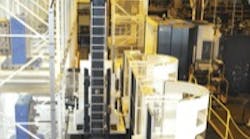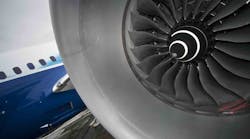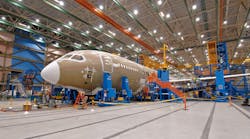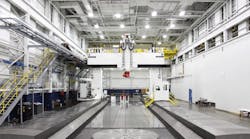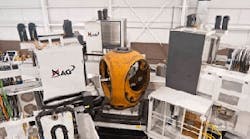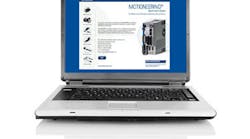Twin Disc quickly switches from job to job with its automated modular multiplepallet machining system.
Twin Disc, a manufacturer of power-transmission products, struggled to meet increased customer demands for just-intime customized transmission housings. The shop's machining process for housings lacked flexibility, was too labor intensive and caused production bottlenecks.
"The old process was a somewhat static one. If a request for an urgent part that was not already in progress came in, we were stuck," Tom Mutter, CNC tool operator at Twin Disc (www.twindisc.com), said. "The process took so long and was so labor intensive we couldn't afford to push parts to the head of the line unless it was absolutely necessary."
This lack of flexibility prevented the shop from getting ahead on housing production and, in turn, forced other downstream processes to wait for housings. The solution was an MMC2 multiple modular-pallet machining system from Makino that decreased housing cycle times by about 40 percent (in part through faster setups) and allowed for interrupting production to meet urgent custom orders.
In Twin Disc's MMC2, 22 pallets (11 per machine) serve two A100E horizontal machining centers, each with a 244-tool magazine. The system lets the shop load several parts onto fixtures, then have the machine automation do the rest.
According to Tim Jones of Makino, a system such as the MMC2 reduces setup times down to how long it takes the system to load a pallet into a machine tool. For the MMC2, pallets load in less than 20 seconds, a vast improvement when considering shops such as Twin Disc typically deal with setup times that run upwards of an hour, commented Jones.
"We've been able to have operators double-up on machines, which saves a lot of time and money. We used to have to assign someone to each machine (with the old system), but because we don't have to pull the part off the fixture for each new piece we put in (the new system), one operator can now handle two machines," said Gregg DeCheck, manufacturing engineer at Twin Disc.
He added that short runs are now possible and that the shop quickly switches from job to job on demand. "We might be in the middle of a run and someone would need two housings. In the old setup, the person needing the housings would be out of luck. Now in a matter of a few minutes, we make a quick change and run the job. We're running parts so fast that we are having problems keeping up our raw casting supply," he said.
